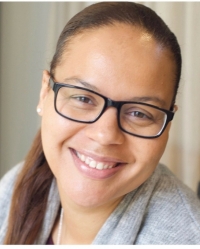Singles therapy group: Love is the key (4 week closed group)
Singles Therapy Group: Love is the Key.
“We're never so vulnerable than when we trust someone - but paradoxically, if we cannot trust, neither can we find love or joy.”
The need to be loved is a basic human necessity. Humans have a basic desire to belong and to love. Intimate relationships should provide us with an opportunity to fulfil these basic desires, but often fall short, leaving us feeling lost, confused, hurt and at worst, used and abused.
Love is the key provides an opportunity where individuals meet to describe and discuss their problems. Group work is based on the idea that human beings are fundamentally social beings, whose lives are inextricably linked with other people in many ways, so some people prefer to work in a group as this offers them another context in which to explore and resolve their difficulties.
About group therapy ...
Under the direction of the psychotherapist: Keeley Taverner, the group is able to give support, offer alternatives and comfort members, so that their difficulties become resolved and alternative behaviours are learned. A group can also help someone develop new ways of relating to people. Groups are usually 4 - 8 people with one or more trained group therapists. During the group meeting, members decide what they want to talk about and are encouraged to give feedback to each other.
Therapy is based on psycho-social education model and incorporates a varied range of therapeutic approaches, all learning is experiential in nature. Our sessions are held at our well appointed therapy centre in central Uxbridge (just a 2 minute walk from Uxbridge station) and in Russell Square (just 2 minutes walk from Russell Square station) from June 2015.
What should I expect and what are the benefits?
Love is the key meets for two and a half hours each week. Some people attend individual therapy in addition to groups, while others participate in groups only. Joining a group of strangers may sound intimidating at first, but group therapy provides benefits that individual therapy may not. Psychologists say, in fact, that group members are almost always surprised by how rewarding the group experience can be.
Groups can act as a support network and a sounding board. Other members of the group often help you come up with specific ideas for improving a difficult situation or life challenge, and hold you accountable along the way.
Regularly talking and listening to others also helps you put your own problems in perspective. Many people experience mental health difficulties, but few speak openly about them to people they don't know well. Often, you may feel like you are the only one struggling — but you're not. It can be a relief to hear others discuss what they're going through, and realise you're not alone.
Diversity is another important benefit of group therapy. People have different personalities and backgrounds, and they look at situations in different ways. By seeing how other people tackle problems and make positive changes, you can discover a whole range of strategies for facing your own concerns.
What is a closed group and open group?
Open groups are those in which new members can join at any time. Closed groups are those in which all members begin the group at the same time.
Is group therapy enough?
Many people find it's helpful to participate in both group therapy and individual psychotherapy. Participating in both types of psychotherapy can boost your chances of making valuable, lasting changes. If you've been involved in individual psychotherapy and your progress has stalled, joining a group may jump-start your personal growth.
How much should I share?
Confidentiality is an important part of the ground rules for group therapy. However, there's no absolute guarantee of privacy when sharing with others, so use common sense when divulging personal information. That said, remember that you're not the only one sharing your personal story. Groups work best where there is open and honest communication between members.
Group members will start out as strangers, but in a short amount of time, you'll most likely view them as a valuable and trusted source of support.
Some of the areas that we cover:
Depression and anxiety | Mood management/regulation | Dealing with trauma | Anger and stress | Relationship issues | Self-esteem and confidence | Addiction | Social Anxiety | Personal development | Dating Issues | Rejection | Sexual Problems
Assessment:
Attendees will need to attend an hour assessment with Keeley prior to joining the group, this session lasts an hour and incurs a £40 investment.


Keeley is a diligent, astute, creative and self-motivated psychotherapist, accredited counsellor, trainer, and coach. In 2001, Keeley was an unskilled checkout operative; by 2012 she had completed her masters degree at the renowned Metanoia Institute, while working full time as the resettlement manager at HMP Wormwood Scrubs Prison.